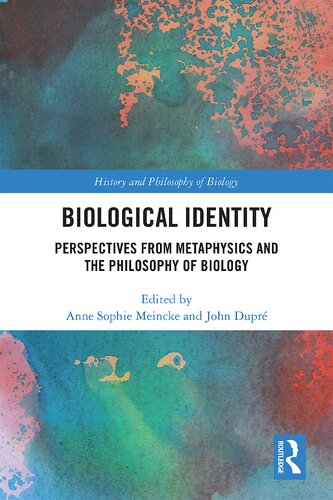

Most ebook files are in PDF format, so you can easily read them using various software such as Foxit Reader or directly on the Google Chrome browser.
Some ebook files are released by publishers in other formats such as .awz, .mobi, .epub, .fb2, etc. You may need to install specific software to read these formats on mobile/PC, such as Calibre.
Please read the tutorial at this link. https://ebooknice.com/page/post?id=faq
We offer FREE conversion to the popular formats you request; however, this may take some time. Therefore, right after payment, please email us, and we will try to provide the service as quickly as possible.
For some exceptional file formats or broken links (if any), please refrain from opening any disputes. Instead, email us first, and we will try to assist within a maximum of 6 hours.
EbookNice Team

Status:
Available4.3
5 reviewsAnalytic metaphysics has recently discovered biology as a means of grounding metaphysical theories. This has resulted in long-standing metaphysical puzzles, such as the problems of personal identity and material constitution, being increasingly addressed by appeal to a biological understanding of identity. This development within metaphysics is in significant tension with the growing tendency amongst philosophers of biology to regard biological identity as a deep puzzle in its own right, especially following recent advances in our understanding of symbiosis, the evolution of multi-cellular organisms and the inherently dynamical character of living systems. Moreover, and building on these biological insights, the broadly substance ontological framework of metaphysical theories of biological identity appears problematic to a growing number of philosophers of biology who invoke process ontology instead.
This volume addresses this tension, exploring to what extent it can be dissolved. For this purpose, the volume presents the first selection of essays exclusively focused on biological identity and written by experts in metaphysics, the philosophy of biology and biology. The resulting cross-disciplinary dialogue paves the way for a convincing account of biological identity that is both metaphysically constructive and scientifically informed, and will be of interest to metaphysicians, philosophers of biology and theoretical biologists.